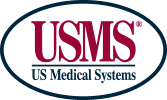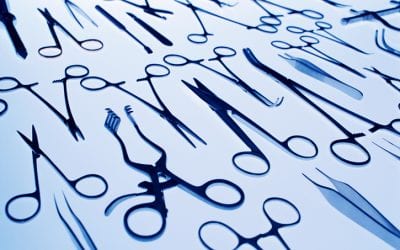USMS Blog
New Trends in Surgical Instruments
Surgical instruments have an impressively long history. Scientists believe that the earliest prototypes of modern instruments and basic surgical techniques originated thousands of years ago. Since then, instruments have been continuously improved upon with new devices...
Sterilization Methods for Surgical Instruments
Sterilization is the elimination of all microorganisms on medical instruments that come into contact with open wounds, bodily fluids, and mucous membranes. It goes without saying that surgical instruments are the type of devices that will require regular...
3 Things to Consider Before Hiring a Surgical Instrument Repair Company
Taking care of your patients is your top priority. Your hospital, surgical facility, or doctor's office is trusted to provide quality care that helps people feel better and live healthier lives. But your staff is just one vital component of this care. The equipment...
Why Is Proper Care of Surgical Instruments Important?
Today we'd like to talk to you about extending the lifespan of your surgical instruments. The key to their longevity is proper care and maintenance. While stainless steel is universally regarded as the best material for surgical instruments, it's wrong to assume that...
All About Post-Warranty Service Contracts
All good things must come to an end. Or do they? When the manufacturer’s warranty runs out on a surgical instrument or other medical equipment, a medical facility is responsible for servicing the device on its own. Granted, an in-house engineering team can deal with...
Why Medical Device Compatibility Matters
Today's medical facilities are using more advanced devices and components than ever before. While the technology being used delivers an unheard of level of patient care, there are also many safeguards that must be put in place. This includes a thorough review of the...
How Can USMS Help With Regulatory Compliance?
Manufacturers can spend years (not to mention a lot of money) to get clearance for their devices from regulatory agencies. But regulatory compliance doesn't stop there. It's an ongoing process that concerns all parties that are actively involved in the device life...
Tuttlingen, the World’s Surgical Instrument Capital
Quality and accuracy are two of the cornerstones of our business here at US Medical Systems. These characteristics are important to the rest of the surgical instrument industry, too. Today, we'd like to take you on a trip to a unique place where history and tradition...
3 Benefits of Modern Surgical Instruments
With the number of surgeries growing every year, surgical instruments have to be on the cutting edge of medical technology. New techniques and procedures mean that new instruments and devices must be developed. As an industry-leading provider of surgical instrument...
3 Reasons to Outsource Your Biomedical Repair Services
Have you ever seen an understaffed in-house biomedical team that's desperately trying to manage multiple OEM service contracts at the same time? Trying to keep track of all the warranty periods, preventive maintenance schedules, software updates, corrective actions,...










